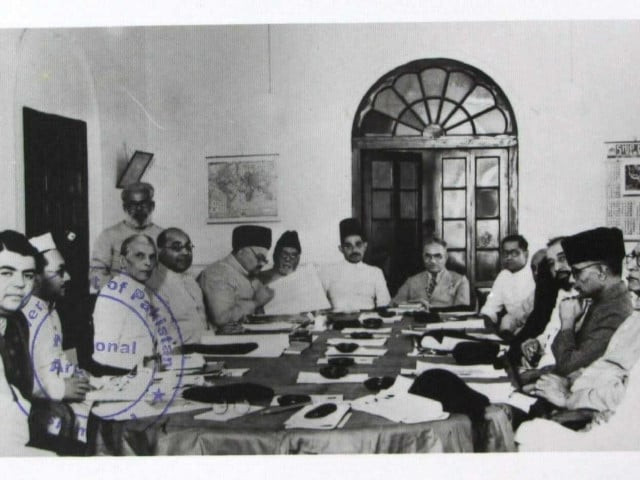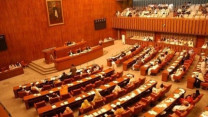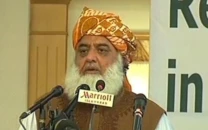Jinnah’s vision for Pakistan
The League stood united reposing its confidence in the leadership of Quaid-e-Azam

Mohammed Ali Jinnah had envisioned Pakistan as a modern democratic welfare state with laws based on Islamic jurisprudence, stressing upon equality and equal opportunities for all citizens.
It was the vision, commitment and intellect, all combined in the person named Jinnah—who once said, “Failure is a word, unknown to me—that Pakistan came into existence on 14 August 1947.
JInnah believed that “Islam came in the world to establish democracy, peace and justice; to safeguard the rights of the depressed. It brought to humanity the message of equality of the rich and the poor, of the high and low. The Holy Prophet (PBUH) fought for these ideals for the major part of life”.
The All India Muslim League (AIML) was established in Dhaka on December 30,1906 under president-ship of Nawab Viqarul Mulk, with Mohsinul Mulk part of the 57-member provisional committee tasked to draft a resolution.
This process was delayed till December 29, 30, 1907 when the resolution was adopted in Karachi under the chairmanship of Adamji Peerbhai.
The first meeting was held at Aligarh in March 1908 presided over by Mian Shah Din of Lahore. The meeting decided to establish the party’s central office and elected Agha Khan as president for 3 years.
The First Annual session held in Amritsar and presided over by Ali Imam in December 1908 demanded separate electorates for Muslims and seats in the Council in proportion to their population.
By 1909, Jinnah formally joined the League, and publicly supported their demand. He started regularly attending League meetings. The League Office was shifted from Aligarh to Delhi because the party leaders apprehended influence from British members of Aligarh College.
By 1912, Agha Khan excused himself and in December 1913 he submitted his resignation.
It goes to the credit of Allama Iqbal and Syed Wazir Hasan who convinced Jinnah to preside over an Annual Session in Lucknow in December 1916.
This session appointed a 71-member committee, including Jinnah, Agha Khan, Raja Saheb of Mahmoudabad, Maulana Mohammad Ali, Malik Barkat Ali, Fazalul Haq and Maulana Zafar Ali to coordinate with the Congress in what was called the Lucknow Pact.
The Delhi Session presided by Fazalul Haq, condemned the Raj for its attitude towards Ottoman Empire following armistice in November 1918. Nation-wide protests followed.
The Raj enacted the Rowlatt Bill in March 1919 and Jinnah resigned from the Imperial Legislative Council.
On April 13, 1919, the Jallianwala massacre occurred and Allama Iqbal condemned it while addressing the Amritsar Session, presided by Maulana Shaukat Ali on December 29-31, 1919. The session formally elected Jinnah as the AIML president
The Lahore Session held on May 24, 25 decided to reorganize the League and reposed confidence in Jinnah. A resolution drafted jointly by Jinnah and M Barkat Ali was moved by Sir Abdul Qadir to ensure “full and complete provincial harmony for every province” and sought “Guarantee for the Muslim Majority in the Punjab, Bengal, and NWFP in case of any territorial redistribution”.
An amendment moved by Dr Ziauddin was incorporated.
It said, “The mode of representation in the legislature and in all other elected bodies shall guarantee adequate and effective representation to minorities in every province, subject, however, to the essential proviso that no majority shall be reduced to a minority, or even to equality”.
The resolution sought “Guarantee for full religious liberty; separate electorate for Muslims with option to abandon in favor of joint electorates, if necessary”.
This resolution formed the basis for political struggle, although it was opposed by Congress in the Nehru Report, published in August 1928, which did not incorporate League Resolution, demanding amongst others joint electorates.
During Jinnah’s brief absence when he proceeded to England on May 5, 1928 and returned back by September, differences occurred within the League.
Abul Kalam Azad, Raja Saheb Mahmoudabad and Ch Khaliquz-Zaman supported the Nehru Report, whilst a group led by Mohammed Yakub, Maulana Mohammed Ali, Malik Barkat Ali opposed it.
When the Subjects Committee met, prior to the League session at Calcutta in December 1928—presided by Raja Saheb—Quaid made a logical presentation and a 23-member committee was constituted, including Raja Saheb, Jinnah, Zafar Ali Khan, Liaquat Ali, Saifullah Kitchlu. The committee submitted its proposal and the AIML rejected the Nehru Report because it served no “useful purpose”.
The League stood united reposing their confidence in the leadership of Jinnah.
Quaid stressed upon the importance of a Constitution to be drafted by the First Constituent Assembly, which he addressed on August 11, 1947. He stressed upon the significance of oath taken by all paid public officeholders, with no role in politics.



















COMMENTS
Comments are moderated and generally will be posted if they are on-topic and not abusive.
For more information, please see our Comments FAQ